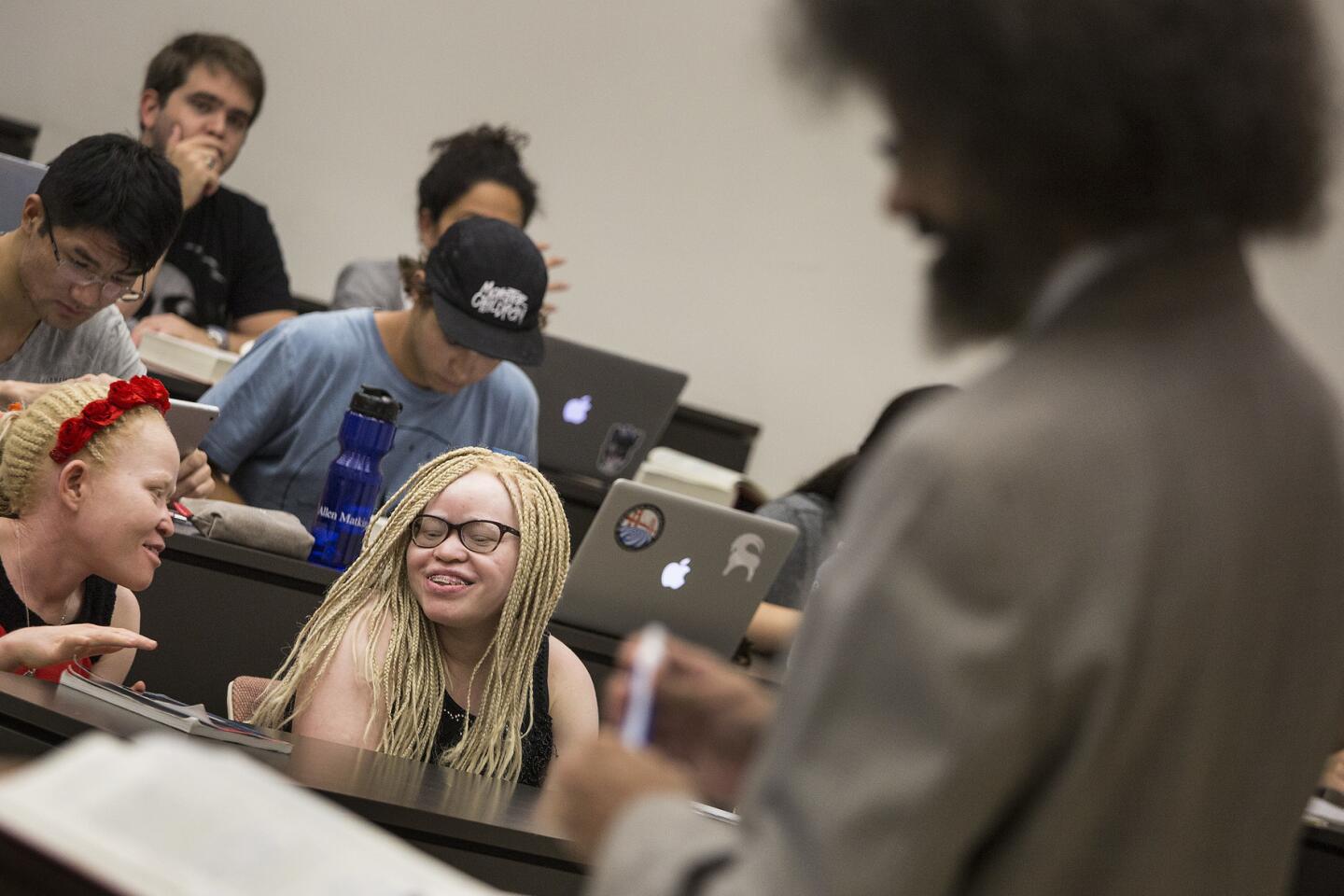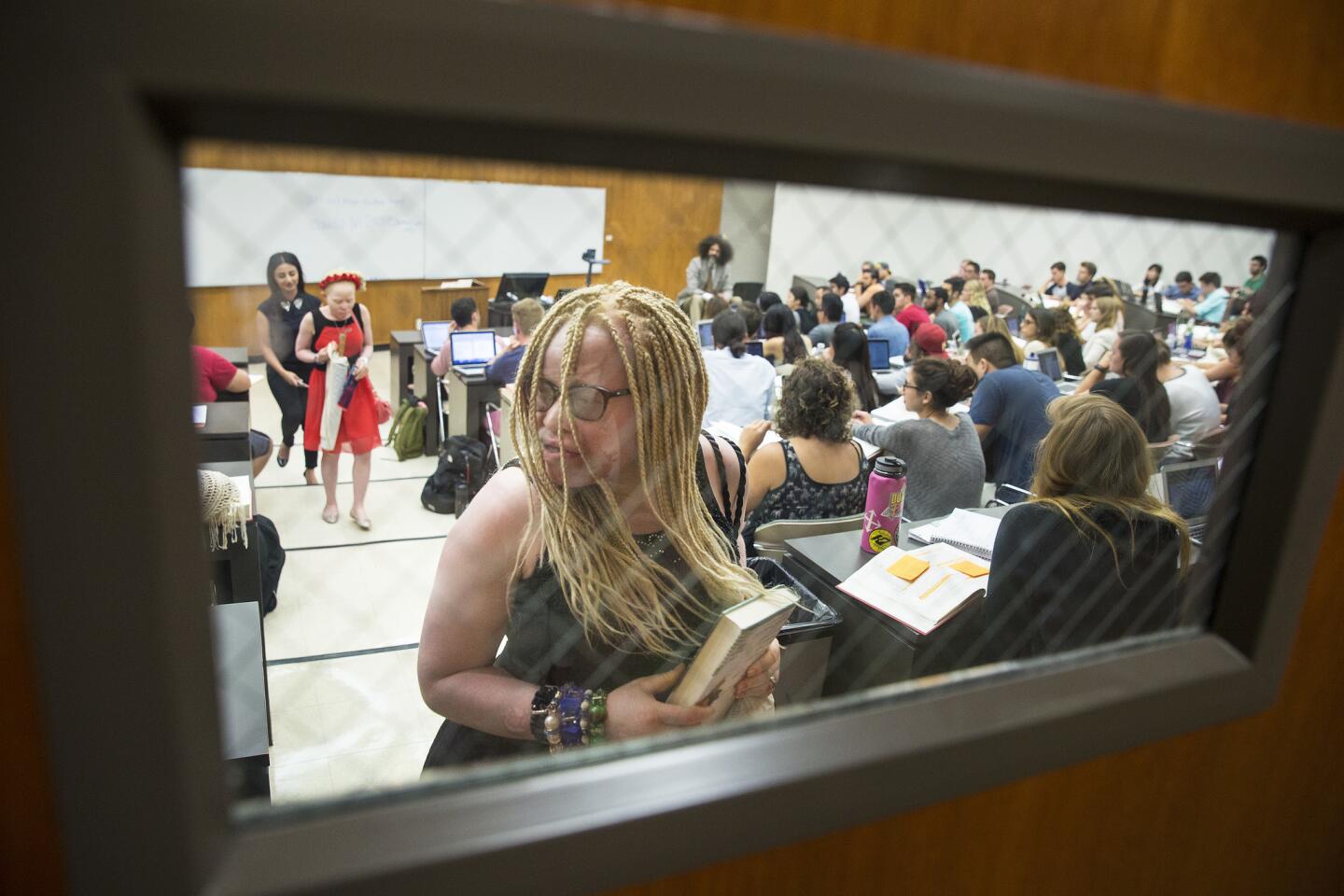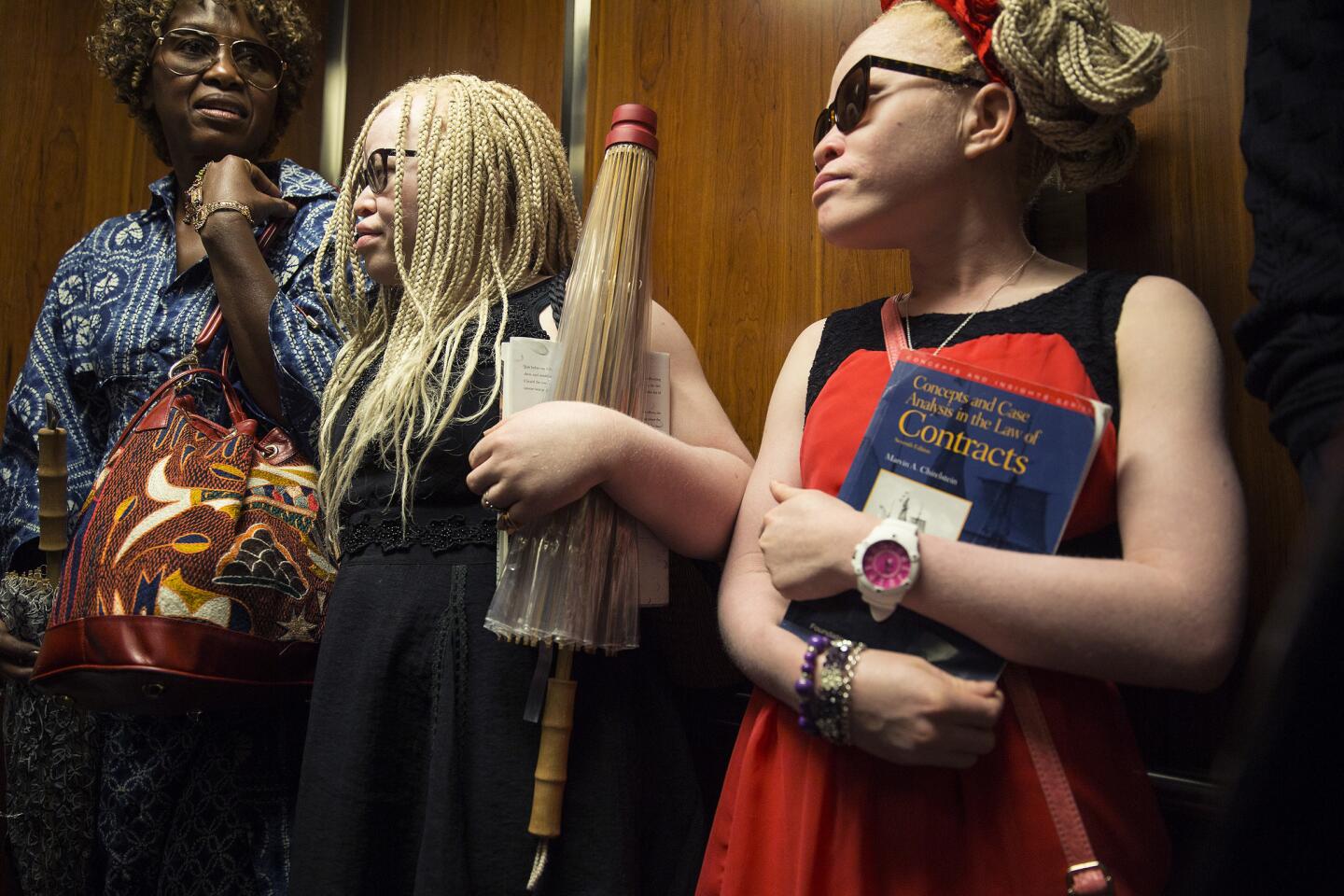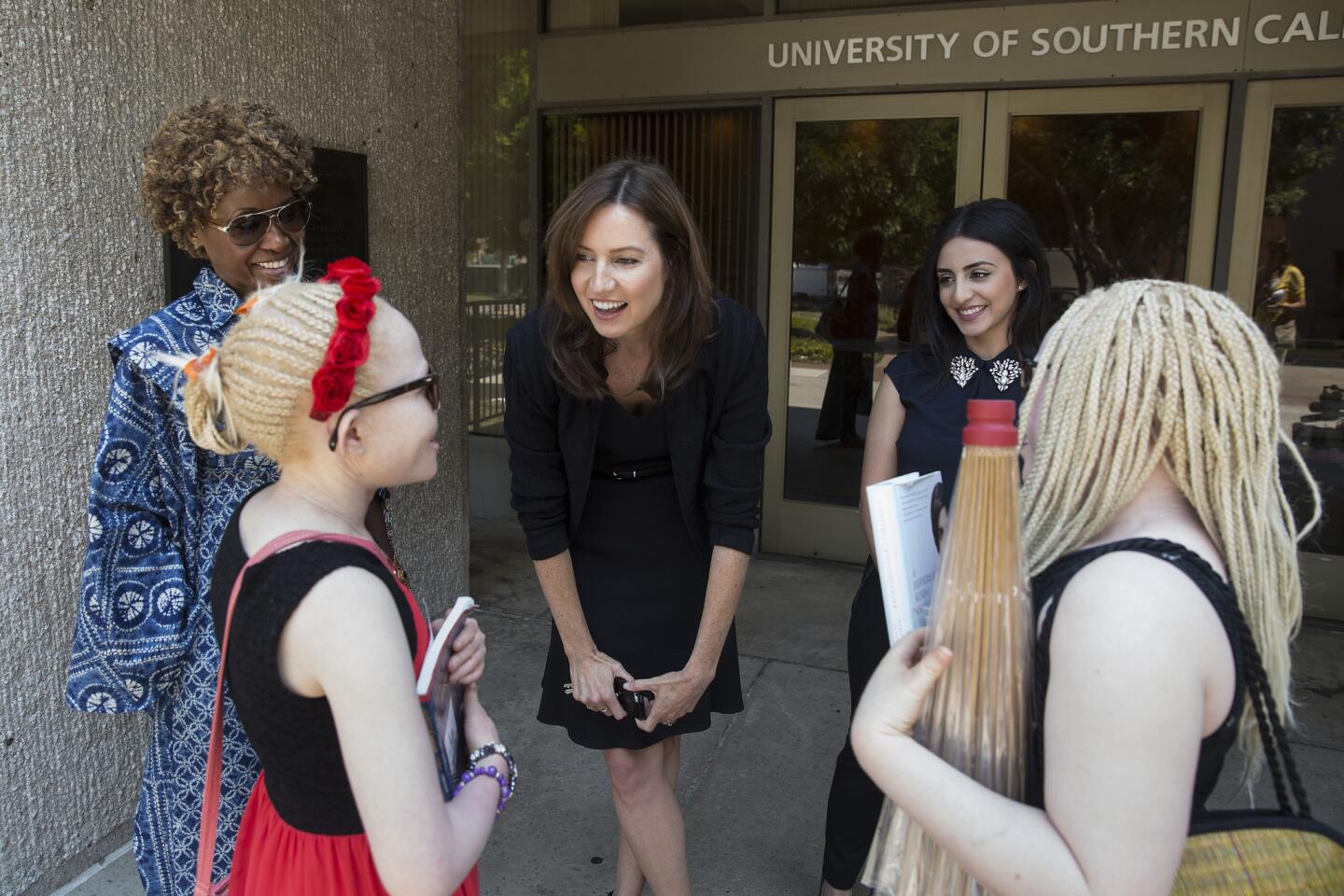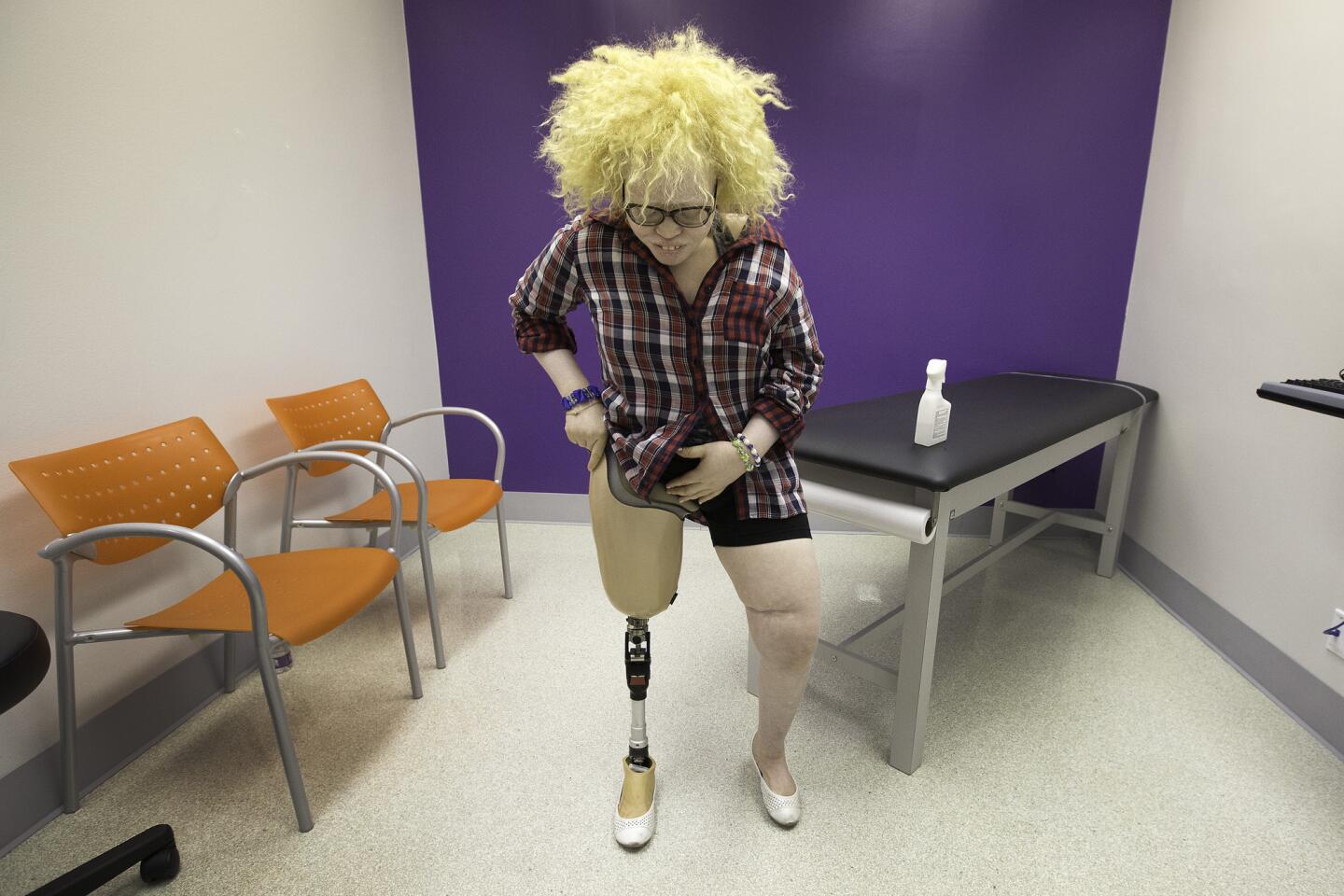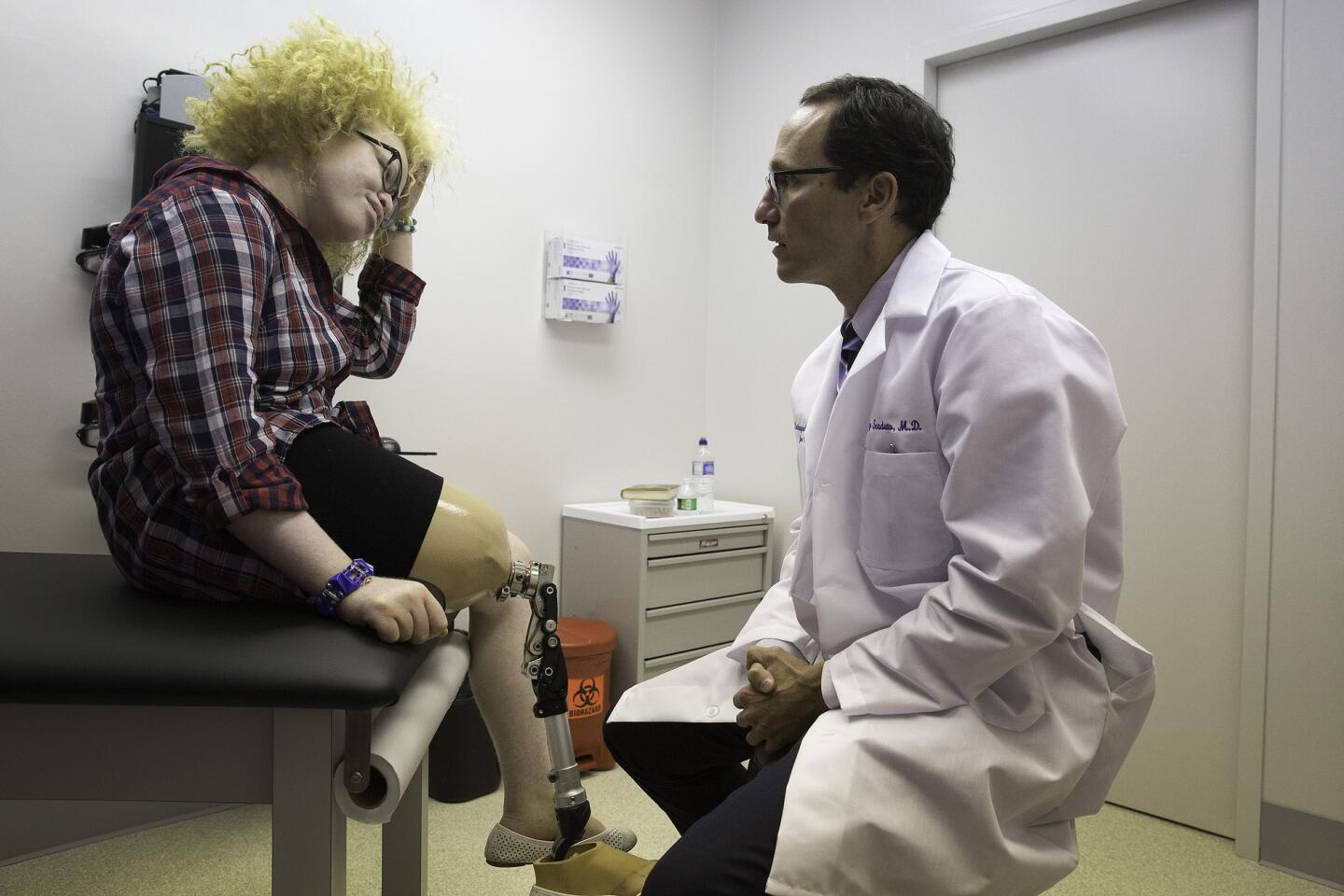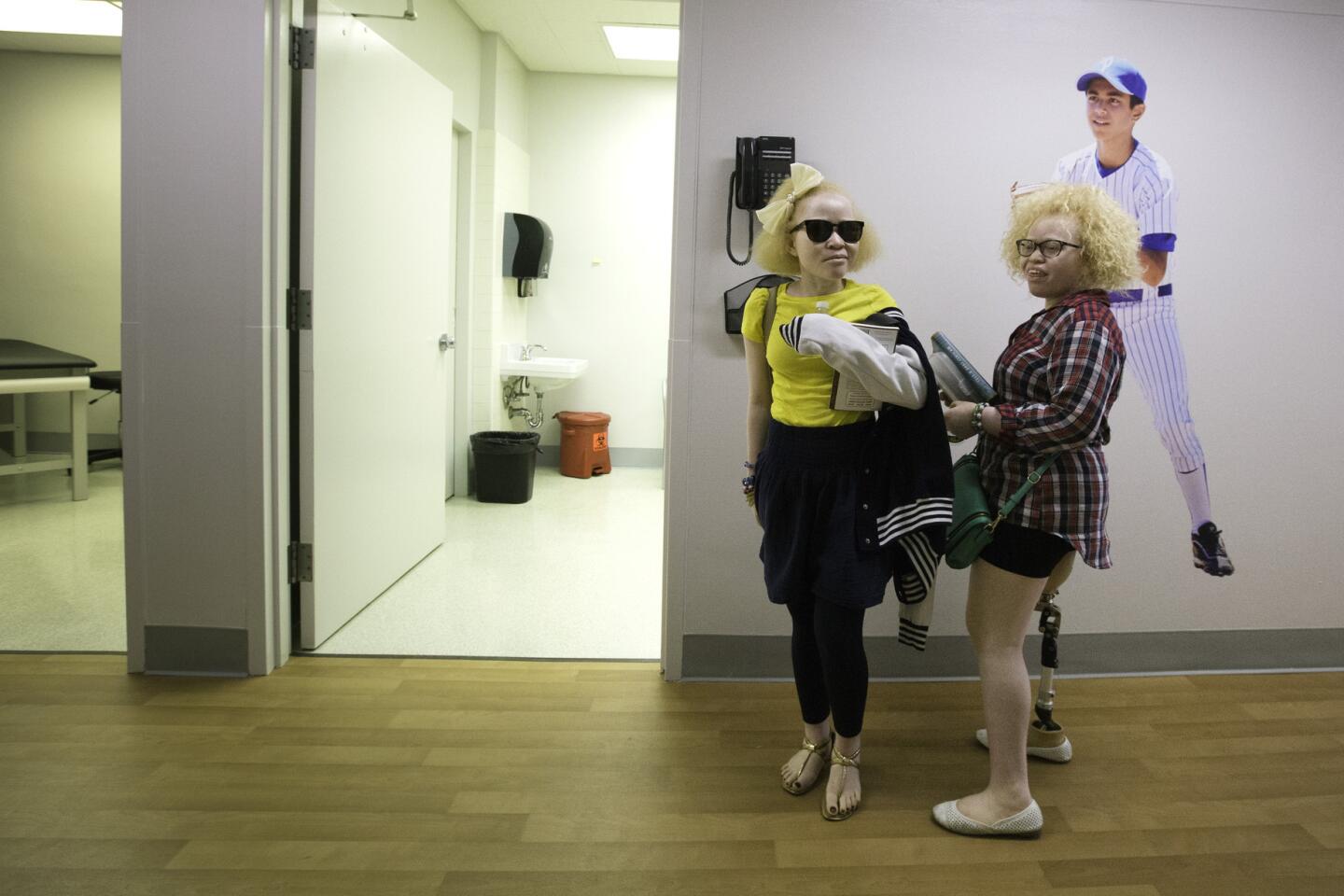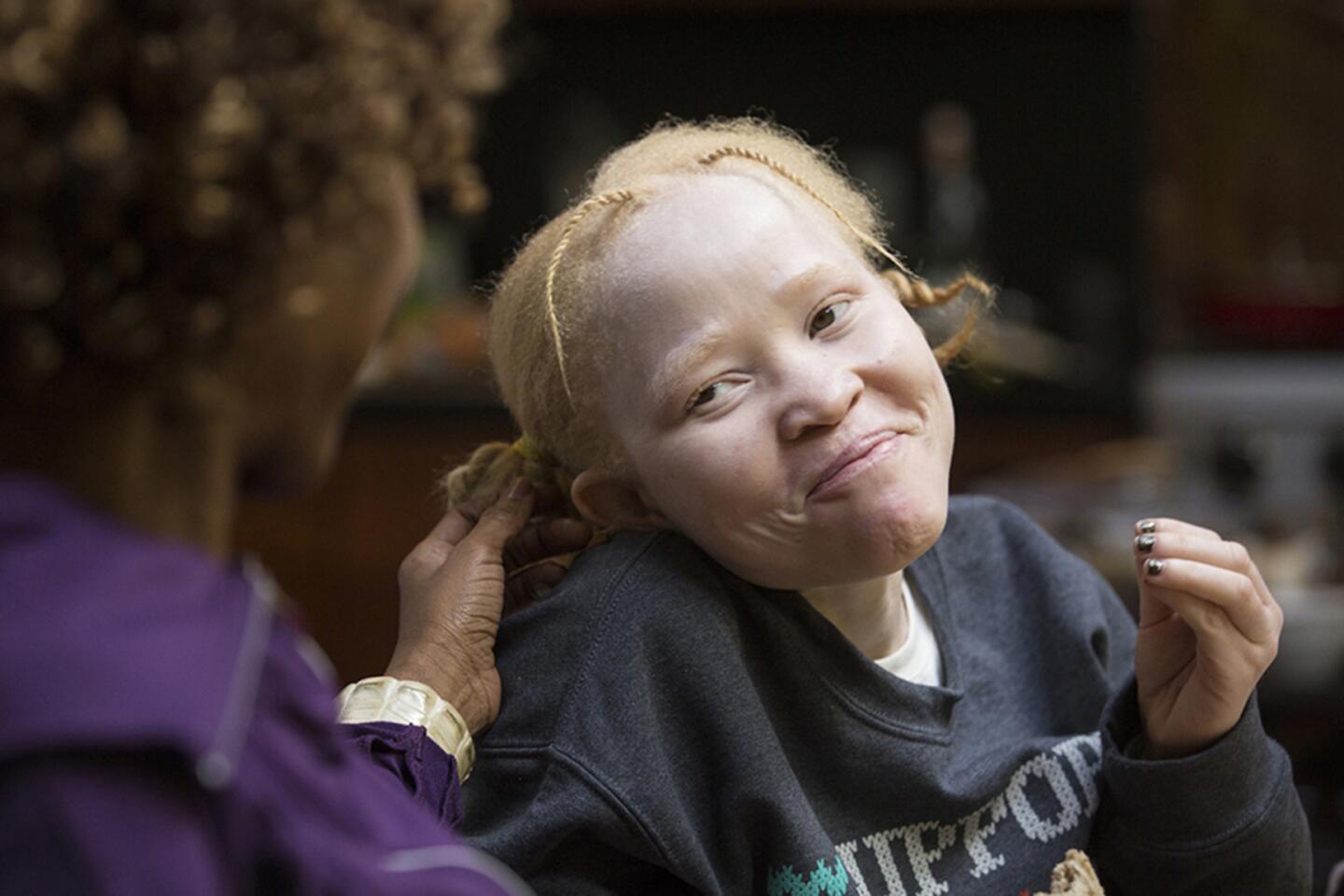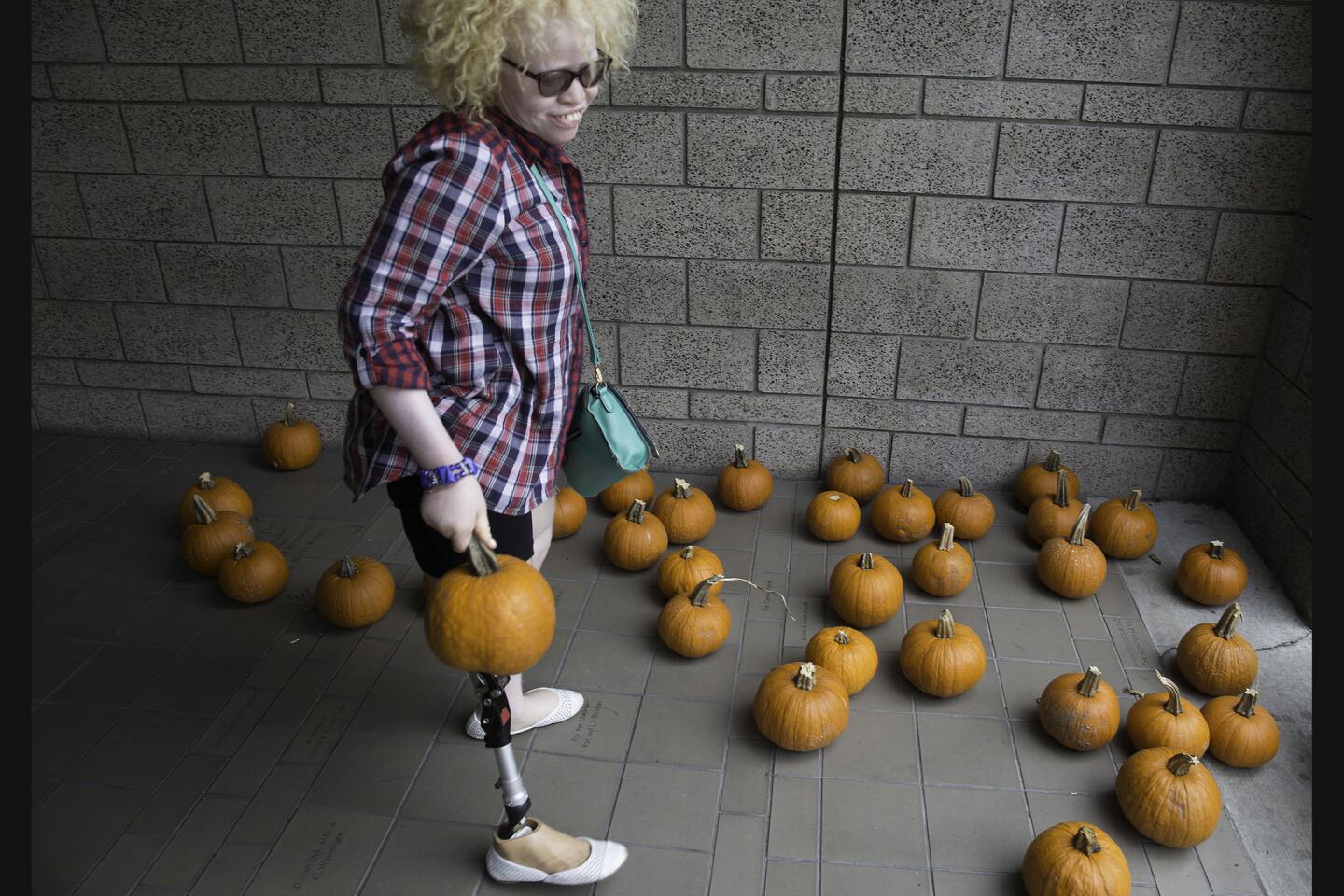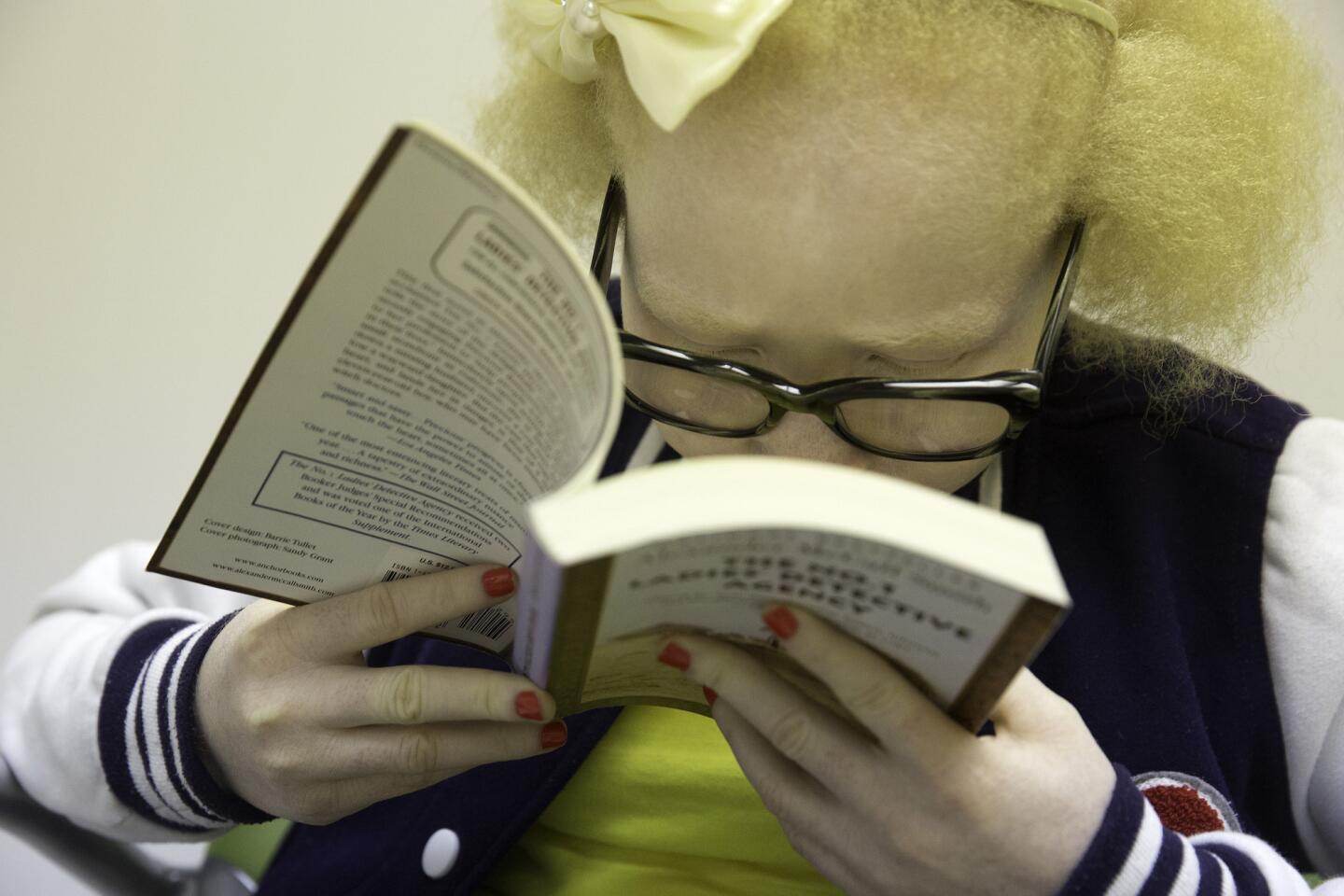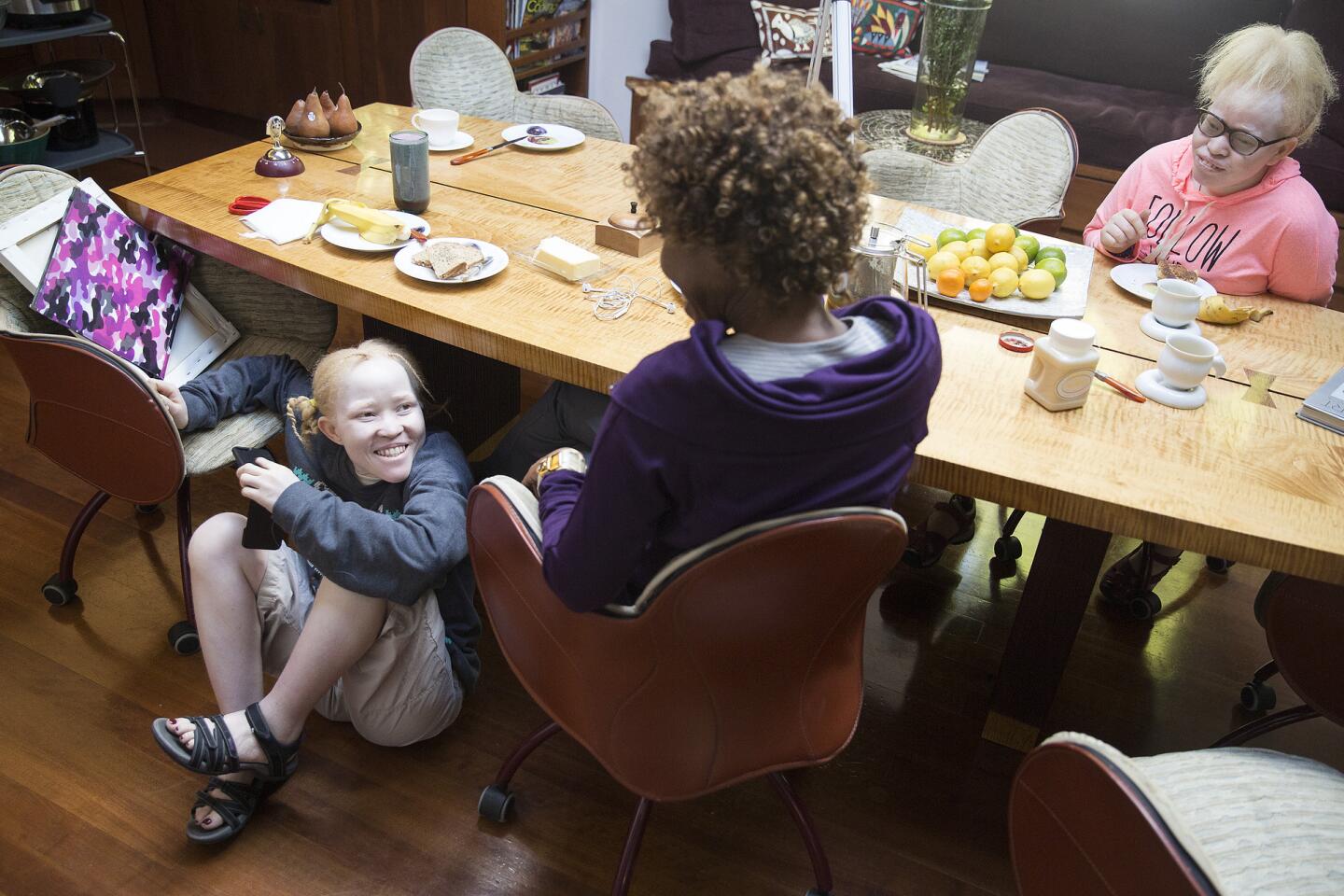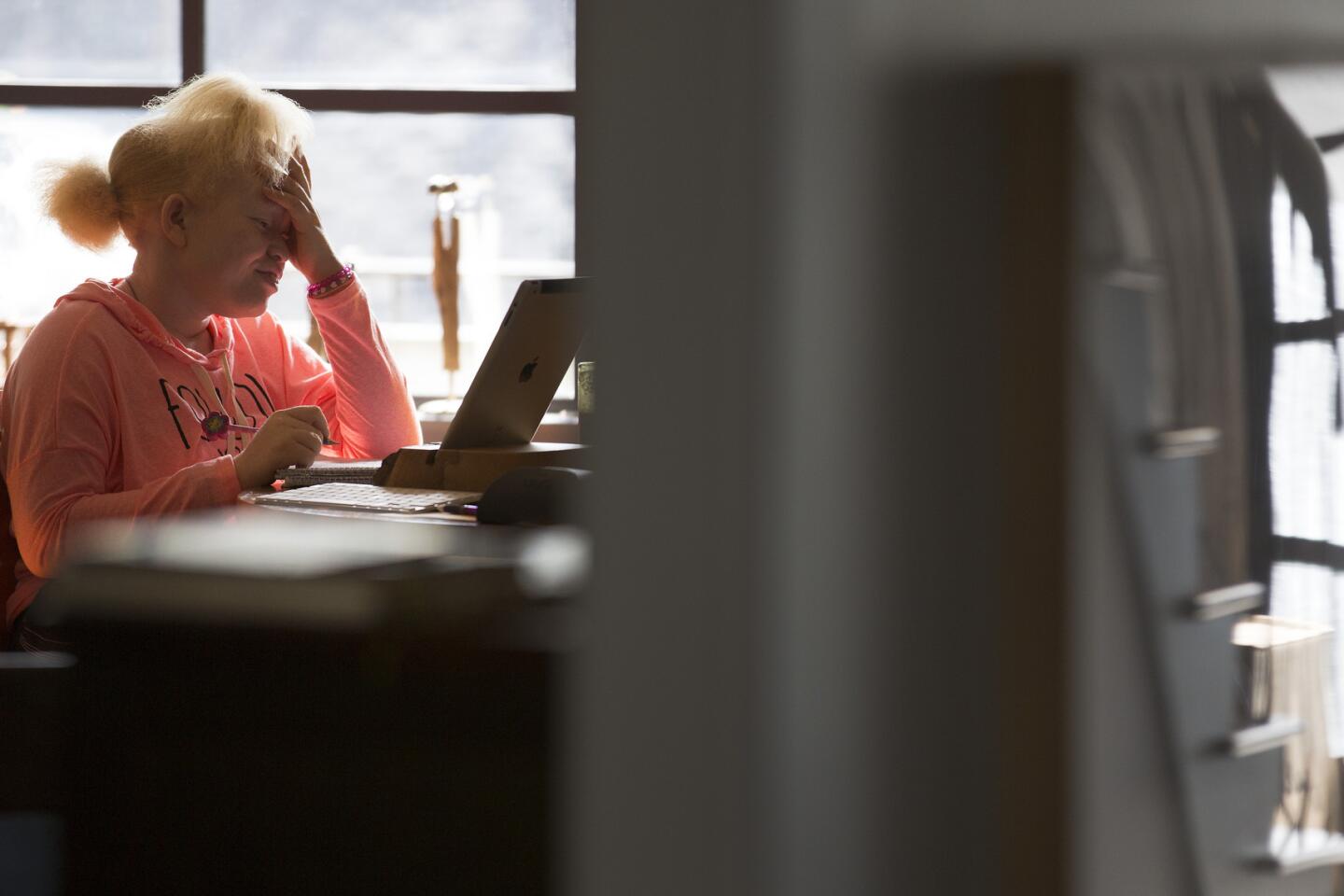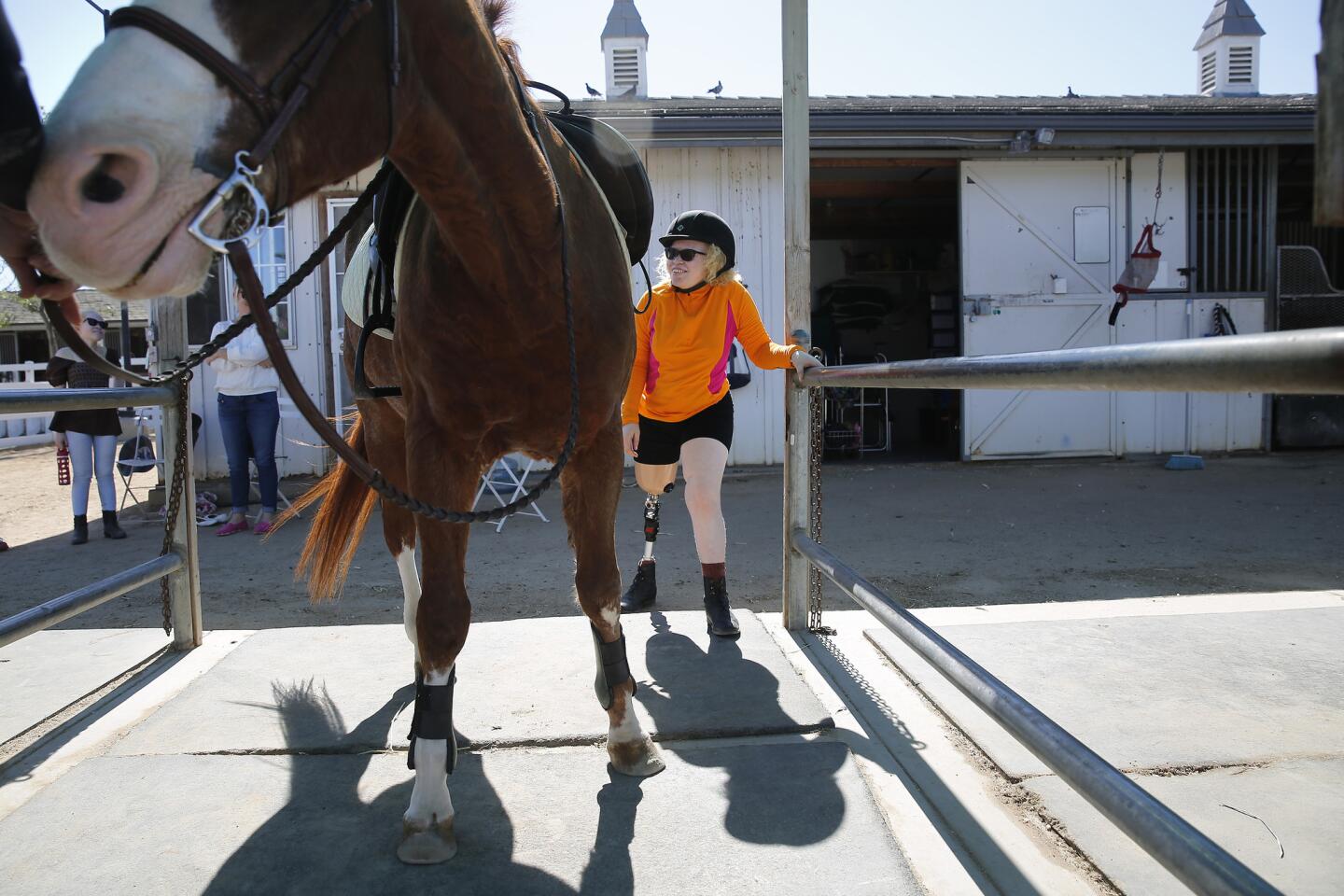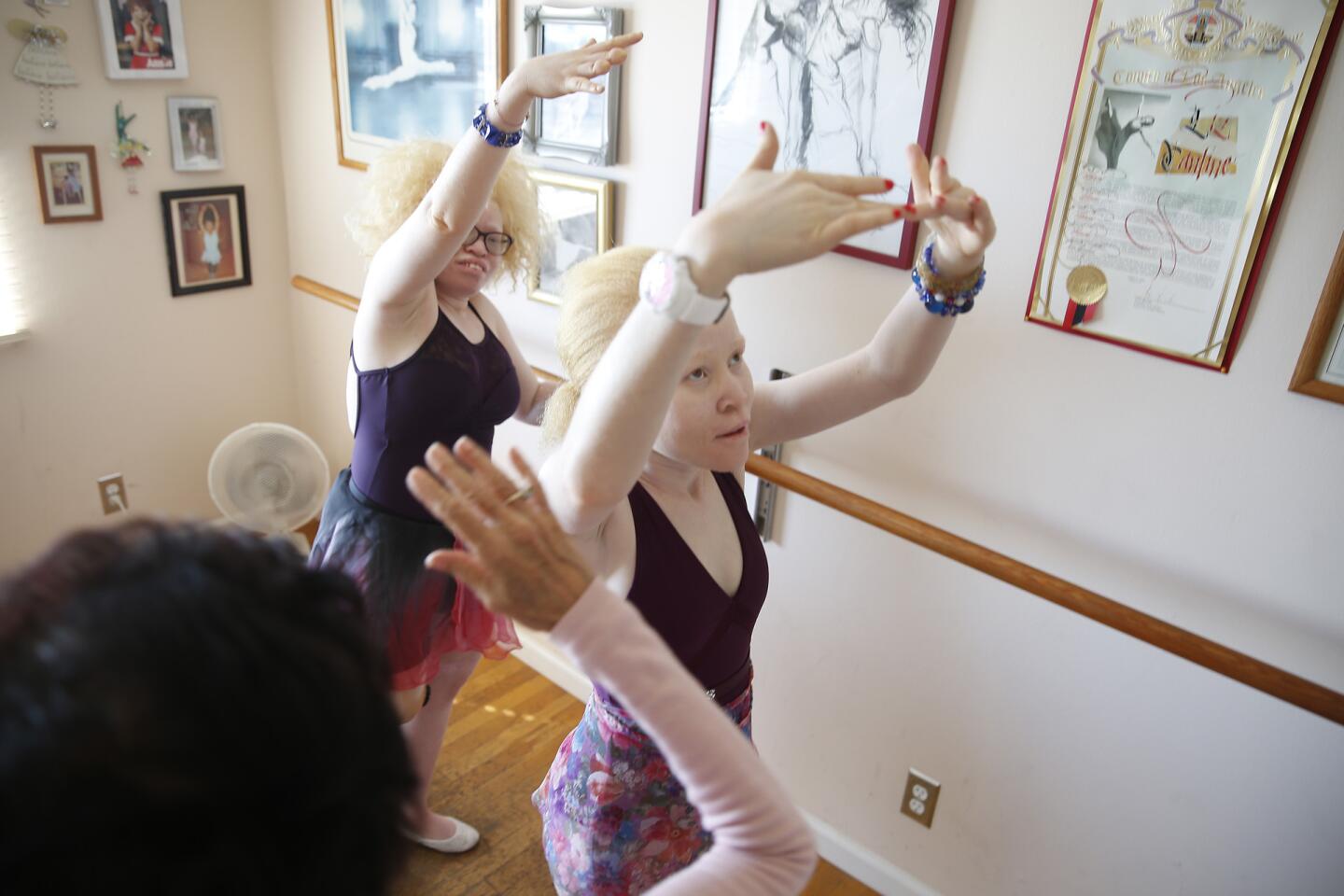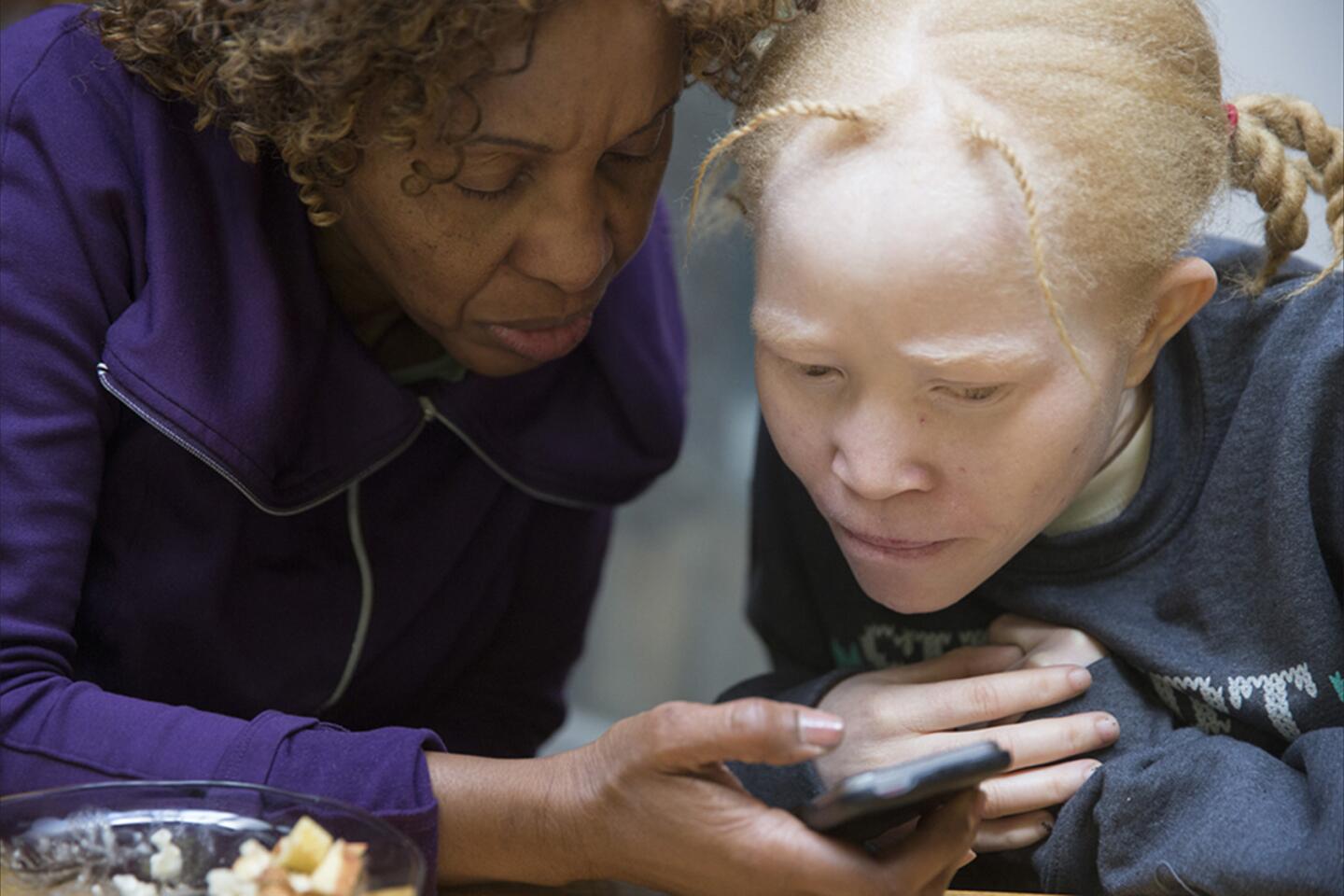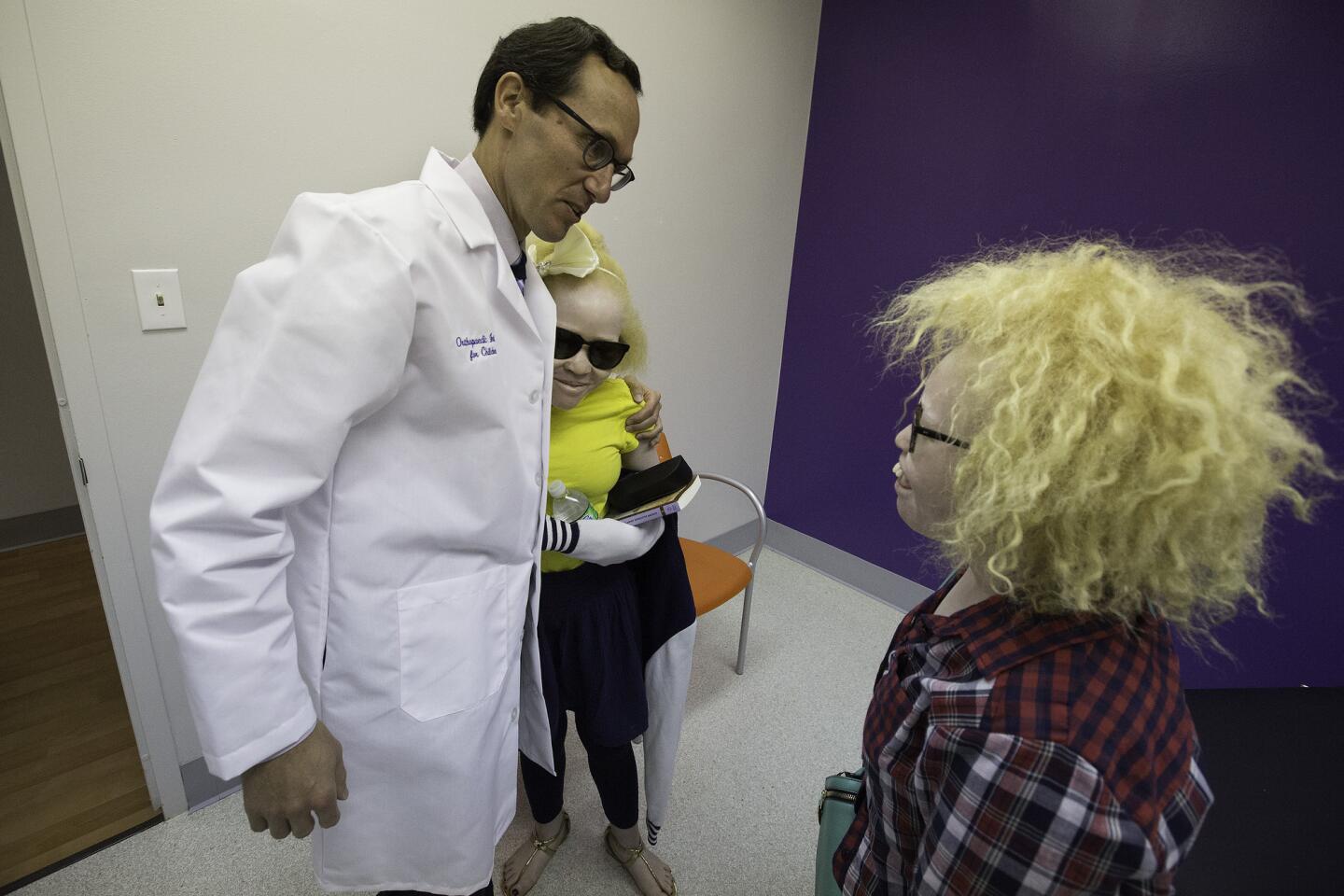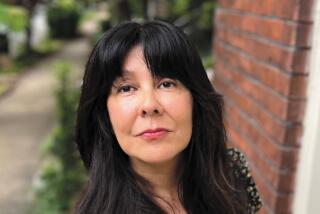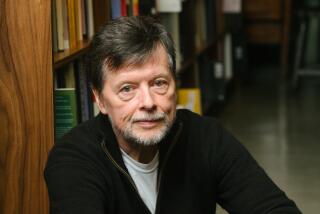With sister in tow, an albino teen maimed in a grisly attack in Africa gets a new limb and life in L.A.
The stark paleness of her skin and myths about albinos being tied to witchcraft made 17-year-old Bibiana Mashamba a subject of suspicion in her isolated African village.
Six years ago, Bibiana and her sister Tindi had just buried their father — a victim of AIDS — when intruders broke into the house they were staying in one night. Tindi managed to hide. But the attackers severed Bibiana’s right leg and two of her fingers.
She outgrew her replacement limb in her village of Butundwe in Mwanza, a port city in Tanzania. Simple tasks such as easing into a desk or getting in and out of a car became difficult. Bibiana fell so often that, in frustration, she took off the replacement limb, preferring crutches or just hopping around.
See more of our top stories on Facebook >>
Malena Ruth, founder of the African Millennium Foundation based in Beverly Hills, heard of her plight, and friends of friends put her in touch with surgeon Tony Scaduto, CEO of the Orthopaedic Institute for Children in Los Angeles. He promised free treatment if “Bibi” could find her way to California.
That happened last April thanks to donors. With her sister and Ruth, their sponsor, Bibi has traveled across the country, driving through more than 10 states. Tindi is one year younger at 16 but more assertive, assuming the role of protector for her older sibling. She too is albino.
My dream is all albinos to become free. ... I will speak different languages and make sure all the people who hurt albinos in my country get their punishment.
— Tindi Mashamba
“My dream is all albinos to become free. I am going to be a judge or a doctor one day,” Tindi said. “I will speak different languages and make sure all the people who hurt albinos in my country get their punishment.”
“We must find a way to change their thinking,” Bibi whispers softly, thinking of earlier days when she lay in a hospital, with her sister by her side after the 2010 attack.
Growing up, their parents usually kept them out of school — fearing they could be caught up in the gruesome trade in albino parts, which some people believed possessed magical powers. Their mother died of asthma years before they came to America.
Al-shaymaa John Kwegyir, Tanzania’s first albino member of Parliament, read about the orphans and decided to adopt them, sending them to boarding school because it is safer.
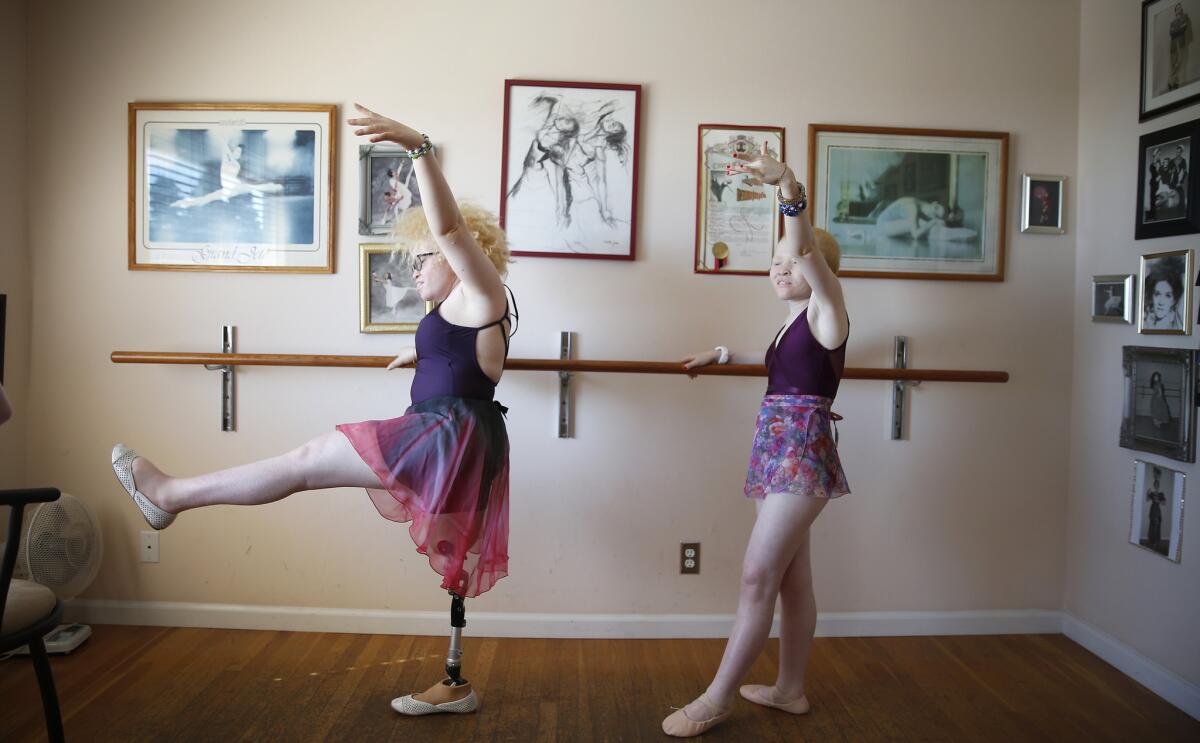
Bibiana Mashamba, left, and her younger sister Tindi take a ballet lesson in Rancho Palos Verdes.
“The girls need education for them to advocate for those who, in one way or the other, still are being stigmatized because of being born albinos,” she wrote in an e-mail.
To get that education, Kwegyir said she decided the girls had to leave their country. She escorted the sisters to L.A., entrusting them to Ruth, who took them to live with her in Beverly Hills.
The two women hope that the chance to study could help the sisters achieve their dreams, including Tindi’s to become a doctor.
Most mornings, when Bibiana doesn’t have to be at the hospital, Ruth ferries her and Tindi to a hilly Hollywood home belonging to Gerrie Smith, a foundation member, for the sort of intense tutoring designed to get them ready for high school.
The sisters scroll through passages on their iPads before memorizing Roman numerals with their tutor Will Foster. They hold the tablets close to their eyes; the girls’ vision was weakened after years without glasses. The smell of biscuits wafts from the oven, but both insist they are not hungry.
“Look at them — they want to stay with their reading,” Ruth said.
“Sometimes, they’ll say: ‘I don’t understand, teacher. Why do we learn this?’ The incredible thing is that they realize a teacher can be a friend,” Foster said. “I tell them that any time you disagree with me, we can talk and compromise.”
It’s a different sensation for children who grew up in schools where corporal punishment was allowed and where asking questions was often frowned upon.
Ruth tells Bibi how proud she is of her progress in ballet and tap classes. Bibiana lit up, hearing that Dr. Scaduto will give her a new foot that she can wear with a heel. She had recently started playing wheelchair basketball.
“I am discovering. Every day, a surprise,” the teenager says. Even a simple salad was something new, causing her to exclaim: “Why, this is not cooked? It’s like food for a goat grazing.”
When she goes to the hospital for checkups with Scaduto, she brings plenty of books to read. The doctor and Bibiana discuss Malala Yousafzai, the Pakistani girl who became the youngest Nobel Peace Prize winner. They talk about other pioneers such as Jackie Robinson and Martin Luther King Jr.
“Around the clock, they have their nose in a book,” Ruth said.
As she practices moving around in a new, high-tech limb, Scaduto guides Bibiana.
“Now, now, just relax,” he said as they face each other in the hospital hallway. “Walk as you would walk on your way to happiness.”
Twitter: @newsterrier
ALSO
Meet the Colorado businessman who is running for president in Congo
Man sues Saudi prince, saying he partied way too hard in his Hollywood Hills home
Santa Clarita foster parents appeal to state Supreme Court in tribal custody battle
More to Read
Sign up for Essential California
The most important California stories and recommendations in your inbox every morning.
You may occasionally receive promotional content from the Los Angeles Times.
